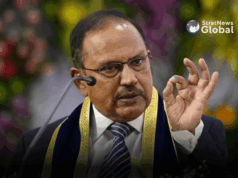
NEW DELHI: Bangladeshi schools textbooks even today do not comprehensively reflect the 1971 war of liberation, argues Ayesha Kabir, editor of the English language edition of the leading Dhaka daily Pratham Alo. This has had an impact on how young people view those events although the government of Sheikh Hasina has done more in that regard to build awareness.
Kabir notes that the trial of many of those accused of complicity in the genocide of 1971 was a powerful trigger for the youth to re-examine their history. She acknowledges that currently, youth are more forward looking, focused on building their skills as the economy globalises. But she says they are also intensely nationalistic, wanting nothing but good for their country and willing to go the extra mile in that respect.
As for how the youth see India, she says many have studied in this country and there is affection and admiration. But there is also the perception of India as “big brother”, largely because of its size, the lack of progress on bilateral disputes such as sharing river waters and the anti-India influence of extremist and radical groups.
Tune in for more in this conversation with Ayesha Kabir.















